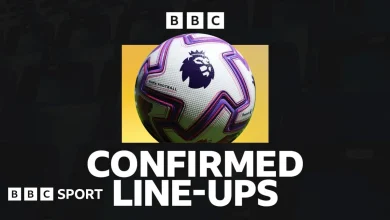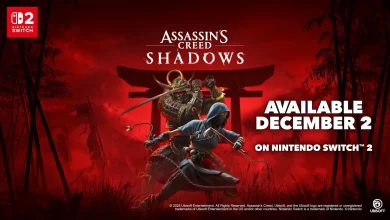The deal that can’t get done. Who will buy The Telegraph now?

This week may have been all about the BBC, but across London, another uniquely British media battle is raging.
For the last two years, The Telegraph has been on the block. A takeover was agreed by Lloyds Bank that had repossessed the media group from the owning Barclay family. The would-be purchaser was a partnership between RedBird Capital Partners of the US and International Media Investments, belonging to the UAE’s Sheikh Mansour. A row about foreign government interference in a national newspaper duly ensued and the deal was kiboshed.
Since then, The Telegraph has been in a funding limbo. RedBird refined its bid so that Mansour’s holding was reduced to a more permissible 15 per cent. But that was not enough to pacify the critics.
The accusations verged on the hysterical as a combination of some senior journalists on the paper, ex-Telegraph figures and political and media commentators joined forces to scupper the £500m takeover. They have now succeeded. RedBird, led by the voluble but nevertheless accomplished Gerry Cardinale, has pulled out.
‘The Telegraph requires a great deal of cash to buy and then to invest, even for an asset that has fallen in value since it was acquired by the Barclay twins for £665m in 2004. Whoever buys it to must contend with a fired-up newsroom and coterie of pundits armed with a sense of entitlement and believe they know best’ (PA Wire)
With that, The Telegraph sale goes back to the drawing board. There may be another bidder hovering – speculation centres on Chelsea FC co-owner Todd Boehly, who has declared an interest. The aggressive Boehly could team up with Chelsea-supporting Lord Rothermere.
The Daily Mail proprietor was also part of the RedBird consortium. Possibly, Rothermere could have a crack himself, but it is unclear if he could afford it or how a single owner of so many national newspapers and such a significant chunk of the audience would be viewed by the competition authorities.
Originally, when Rothermere’s name was first mentioned, it was thought he might sell The i Paper, possibly to Rupert Murdoch’s News Corp, to appease the regulators. But much has changed in the Murdoch firmament since then, with son Lachlan, not as natural a lover of print as his father, today calling the shots. Lachlan is supposed to want to reduce the family’s exposure to “legacy” journalism not increase it.
Another figure that has been suggested is former advertising tycoon, Maurice Saatchi, but again, even if he can call upon the wealth of his new partner Lynn Forester de Rothschild, his ability and willingness to enter the ring must be open to doubt.
This is the point. The Telegraph requires a great deal of cash to buy and then to invest, even for an asset that has fallen in value since it was acquired by the Barclay twins for £665m in 2004. Whoever buys it must contend with a fired-up newsroom and coterie of pundits armed with a sense of entitlement and who believe they know best.
Those who rejected RedBird should be careful what they wish for. They complained of probable Chinese-state influence because John Thornton, the ex-Goldman Sachs banker and chair of RedBird, was photographed in 2024 shaking hands with a senior member of the Beijing politburo.
Thornton does enjoy close links with China, nothing new or disguised there, but along with the likes of other leading and hugely successful global financiers such as Stephen Schwarzman of Blackstone, he has followed a policy that the world’s second-biggest economy is impossible to ignore. Thornton has sat on the boards of HSBC, BSkyB, News Corp and the advisory board of McKinsey, to name but a few of his positions. He’s also previously advised Donald Trump on US-China trade talks. It’s true he was cited by the Chinese as having made a significant contribution to the country’s development over the past three decades – as one of 15 foreign experts similarly lauded.
There was no evidence of a China presence among the investors in the group behind the Telegraph purchase and the notion that RedBird was in any way steered by China was explicitly rejected. The American private equity company owns a stake in the parent company of Liverpool FC, seemingly without Chinese players taking to the pitch.
Likewise, much was still made of the RedBird line-up containing the 15 per cent belonging to IMI, controlled by Mansour, vice-president of the UAE and owner of Manchester City. It was 15 per cent, for heaven’s sake. Is Rothermere the sort to be managed by the hands of Beijing and Abu Dhabi?
If it prevailed, RedBird was to form an independent advisory board, of the type that Rupert Murdoch established when he bought The Times and The Sunday Times, and chaired by Lord (Guy) Black, someone with a pedigree in fighting for press freedom. Black is currently deputy chair of the self-same Telegraph. Again, conveniently ignored.
Also brushed aside was that this was the newspaper formerly owned by Lord (Conrad) Black — who went to jail in the US for fraud (and was subsequently pardoned by President Trump). The paper was subsequently sold to the Barclay brothers and it was their financial stewardship, or lack of it, in relation to The Telegraph and their other business interests, that forced this sale.
When the newspaper group went on the market there were few serious bidders, not at the asking price. RedBird emerged from a small field. It had the cash to buy and to invest further. Cardinale wrote of his desire to succeed, “for one simple reason: we believe it has the potential to become the most successful conservative newspaper in the English-speaking world”.
He stated his intention to make The Telegraph “the global centre right equivalent of The New York Times”, a boast that predictably riled the left. But, whatever your politics, why couldn’t he? Cardinale and his backers espied a gap and they were going for it. If the moaners had any sense, they would have welcomed the plurality and the prospect of one of our oldest media institutions surviving and possibly flourishing – there was a clear business case for where Cardinale wants to take it.
Earlier this year, Cardinale itself paid $150m for The Free Press, formed just a few years previously by Bari Weiss. Steven.com, the company of the podcaster, entrepreneur and Dragons’ Den investor, Steve Bartlett, has just received a $425m valuation. They’ve achieved those in little time, from virtual standing starts. The Telegraph, by contrast, is 170 years old.
Industry fortunes can also fall with alarming speed – no one is immune. In 2017, Vice was valued at nearly $6bn, in 2023 it filed for bankruptcy.
The Telegraph folk would have been wise to grab the cash while it was on offer, and in the knowledge there was the promise of more to come.
But oh no, the whiff of something masked as abiding concern about national security and free speech, and not a little snobbishness, kicked in. They didn’t like Mansour nor did they welcome the cut of the tough, outspoken Cardinale’s gib.
Cardinale is no fool. The Free Press is one part of his bulging portfolio, along with Paramount Global, owner of CBS News and 60 Minutes. And production house, Artists Equity. It was ridiculous RedBird’s opponents did not pay attention to this comment from him: “As with all our intellectual property-based businesses over the last 25 years, we will never compromise the integrity of the content which is core to the investment thesis in our underwriting plans. We don’t tell Ben Affleck and Matt Damon what movies to make at Artists Equity and we won’t ever compromise the editorial independence of The Telegraph. At RedBird, we are very clear about one fundamental premise: don’t invest in a newspaper if you want to influence it – that will kill the investment thesis and is just bad business.”
Well, his investment has been killed and you have to say, it is a bad business. There is a reason why journalists stay journalists and rarely become billionaire owners.
They may feel self-satisfied, but their beloved title has gone from having a secure future to one which, in the short-term at least, is uncertain. Meanwhileas The Telegraph stands still, picked in aspic, its competitors advance.





